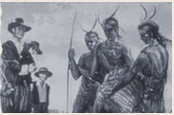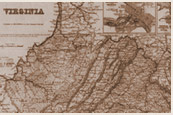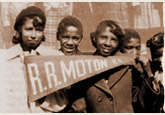Biography of John Locke and transcripts of his major writing
Stanford University: Encyclopedia of Philosophy
Painting of John Locke
University of Wisconsin
Declaration of Independence
United States Archives: America's Historical Documents
Description: John Locke was a political and religious philosopher in England during the later years of the 17th Century. His political writings have been extremely influential during the Age of Enlightenment. In his works, The First and Second Treatise of Government, Locke states his opposition to the idea of absolute monarchies based on heredity. Locke utilizes Christian scriptures to debunk the philosophy that Kings were granted power from God. Also, Locke expounds on the natural rights of humans and how, as humans, people are part of a social contract where one is willing to forfeit some rights to a central government while keeping other rights in order to promote stability and safety for the greater good.
Included in these links are a biography of John Locke and a full transcript of his major works with links to the individual chapters. Also, there is a portrait painting of Locke.
Teaching Tips:
"Do Now" Suggestions
- Locke uses Christian scripture to debunk absolute monarchies. Discuss why this was an appropriate rebuttal to that philosophy.
- Pretend people inhabit a new planet and form a fictional new society. Discuss what people would need in terms of government in order to ensure their survival. Extend this activity by comparing this experience to the Mayflower Compact or to the political order of the Jamestown settlement.
- Create an ideological outline of John Locke’s work. Compare with a similar outline of Thomas Paine’s Common Sense. Then in small groups, highlight ideas or wording from the Declaration of Independence that mirror Paine’s and Locke’s ideas.
- Create a metaphor of the social contract and the natural rights of man by using your school or classroom policies. What rights do students forfeit? What rights do they keep? Then, examine the Bill of Rights. If those are the rights we keep, what are the rights we give up to the central government in order to be part of our social contract?



